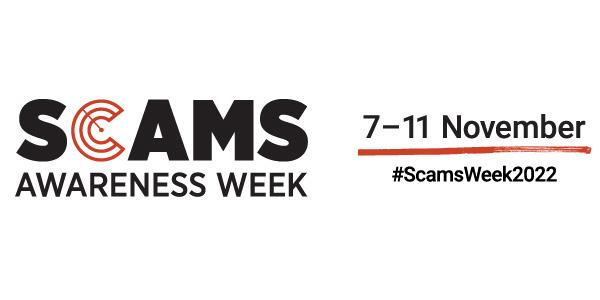More is proud to support Scams Awareness Week (7–11 November 2022).
Scams Awareness Week is an annual campaign hosted by the ACCC and the Scams Awareness Network, which raises awareness about common scams and offers tips on how people can protect themselves from scammers.
This year Scams Awareness Week is about empowering people to learn how to spot a scam and encouraging them to take the time to check whether a communication or offer is real.
There are some simple ways to detect a scam. These are some things to look out for:
- A person or a message urging you to act quickly, whether it's a threat to make an urgent payment, a request for upfront payment or a limited opportunity too good to miss.
- A person or a message asking you to update or provide your personal details, such as identifying information, banking details or passwords, or asking to remotely access your device.
- Any payment request via unsecure or unusual methods such as cryptocurrency, gift cards or bank transfer.
- A person or suspicious message claiming they have new contact details or asking for payment to a new bank account.
- Anyone offering unsolicited financial or investment advice or claiming you can make fast or guaranteed money with little to no risk.
Scams can cause serious harm, so take the time to check whether an offer or contact is genuine before you act on it.
Here are some simple tips from us to help protect you from being scammed:
- Don't engage with any SMS, email, direct message, phone call or good old fashion knock on your door from someone you don't know especially if they ask you to either click on a random link, provide personal information &/or download any files, it's best to err on the side of caution.
- While time-consuming, it is a wise move to update your passwords regularly and make them hard to crack which unfortunately means no more password123! Add a 6-month change your passwords reminder to your phone, and it's a good idea not to keep your passwords and personal information filed on non-encrypted apps or websites, such as an excel spreadsheet.
- If you have the option to add a multi-step authentication (or MFA), which provides an extra layer of security, then do it! Without MFA, if someone has access to your inbox, they can potentially gain control of any linked online accounts.
- Avoid using open WIFI connections. While accessing free WIFI may seem attractive, the fact is that open or public WIFI connections can be a cybercriminals playground! Always access WIFI via a trusted network, a mobile hotspot, or a virtual private network, commonly known as a VPN. A VPN is software that encrypts all connections, which means that a cybercriminal won't know which websites you visit and the credentials your using.
- Install anti-virus software on your devices and keep it up to date.
- Check the Scamwatch website for updates on any recent scams making the rounds, and lots of useful information to help keep you safe.
Don't be a statistic!
Did you know that scams cost Australian consumers, businesses and the economy hundreds of millions of dollars each year and cause serious emotional harm to victims and their families.
In 2021, combined scam losses reported to Scamwatch, banks and other government agencies was $1.8 billion. One-third of victims do not report scams, so actual losses were well over $2 billion.
In 2022, losses to Scamwatch have increased by around 100% suggesting we are looking at losses of around $4 billion this year.
Only around 13% of victims report to Scamwatch.
Scamwatch data between 1 January - 31 August 2022:
- Scamwatch received over 146,700 reports with more than $381.2 million in total losses.
- The highest loss categories were investment scams ($267.2 million), dating and romance scams ($23.4 million) and remote access scams ($16.6 million).
- The top three most reported scams were phishing (44,600 reports), false-billing (23,300 reports) and online shopping scams (11,700 reports).
- The most common contact modes were phone (46,00 reports), SMS (45,200 reports) and email (28,700 reports).
- Approximately 27% reported loss of personal information.
- Small businesses reported almost $70 million in losses across approximately 2,200 reports. False billing and phishing were most commonly reported by small businesses.
- Reporters identifying as culturally and linguistically diverse accounted for almost 10% of all losses.
- Indigenous Australians accounted for less than 1% of all losses.
- People with disability reported almost 7% of all losses.
- Research commissioned by the ACCC in 2021 found that 96% of people have been exposed to a scam in the last five years with half of these contacted weekly or daily by scammers.
- The same research found that 30% of victims do not report the scam
What to do if you think you have been scammed?
REPORT IT!
If you're unsure, observe something suspicious, or your private information has been compromised, head on over to Scamwatch's where to get help page.
Also, visit the Scams Awareness Week website for more information: www.scamwatch.gov.au/scamsweek








